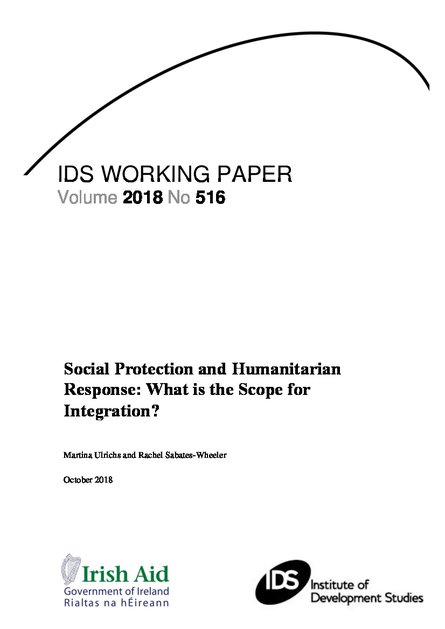
Given the rise in humanitarian emergencies triggered by climate-related risks and conflict, often in contexts of chronic poverty and vulnerability, the international community is calling for the better integration of short-term humanitarian assistance and longer-term development interventions.
In this context, social protection is increasingly portrayed as a policy tool that can address chronic, as well as acute needs by delivering assistance in response to shocks through established, scalable systems. This paper lays out the key arguments for more integration between the humanitarian and social protection sectors, while discussing the potential tensions emerging from conflicting mandates and institutional structures. Whether or not more integration will provide more efficient and effective responses to crises depends on the type of shocks and the crisis context, as well as the capacity and coverage of the social protection programme to deliver to additional caseloads.
Based on a review of the existing evidence, the paper concludes that important gaps need to be filled with regard to the technicalities of linking short- and longer-term interventions in humanitarian contexts, particularly in relation to mobile populations and refugees, and understanding better the political economy factors that facilitate bridging the humanitarian–development divide.